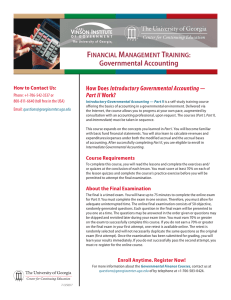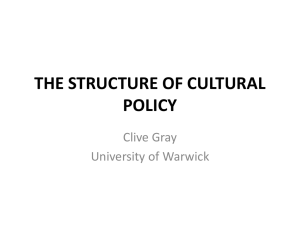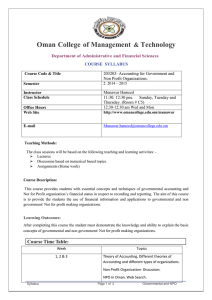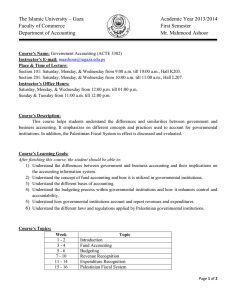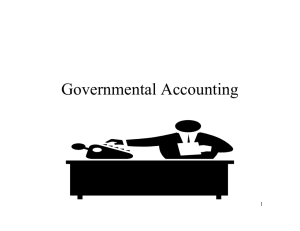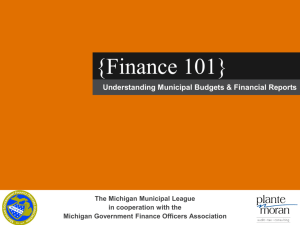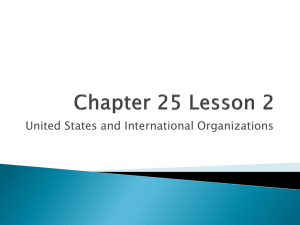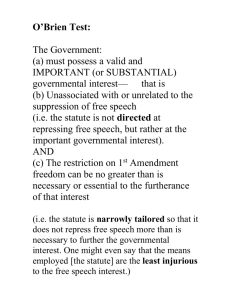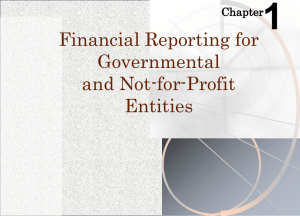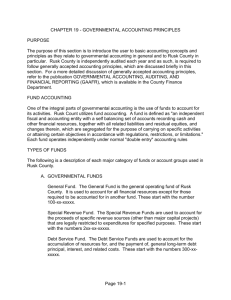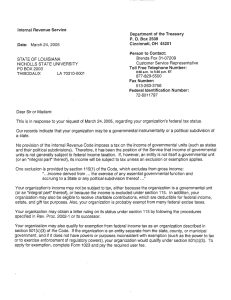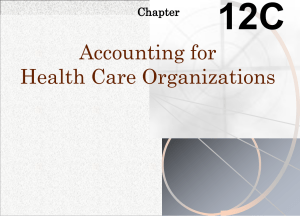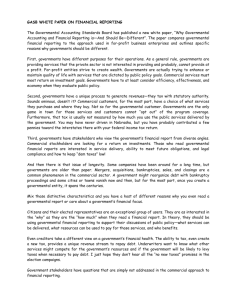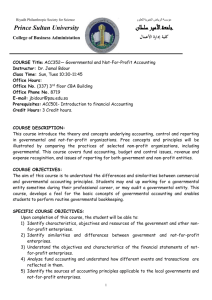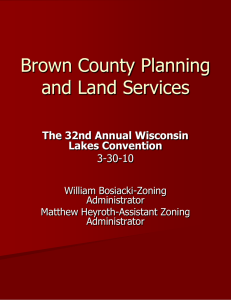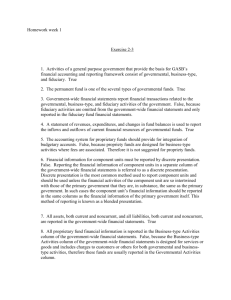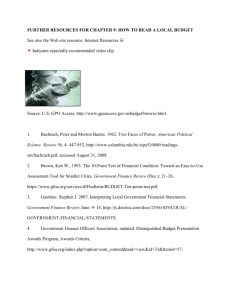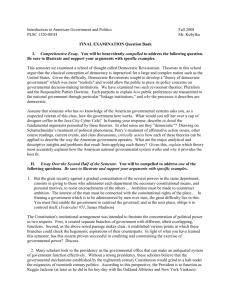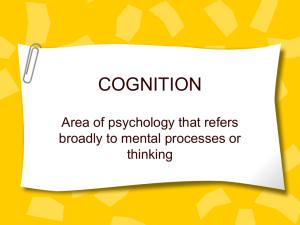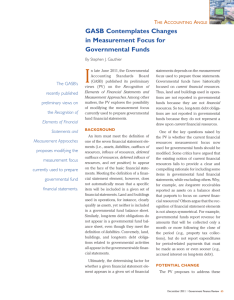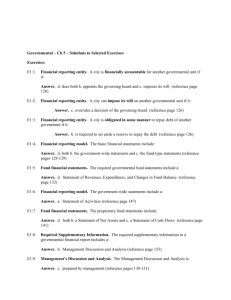Public Information
advertisement
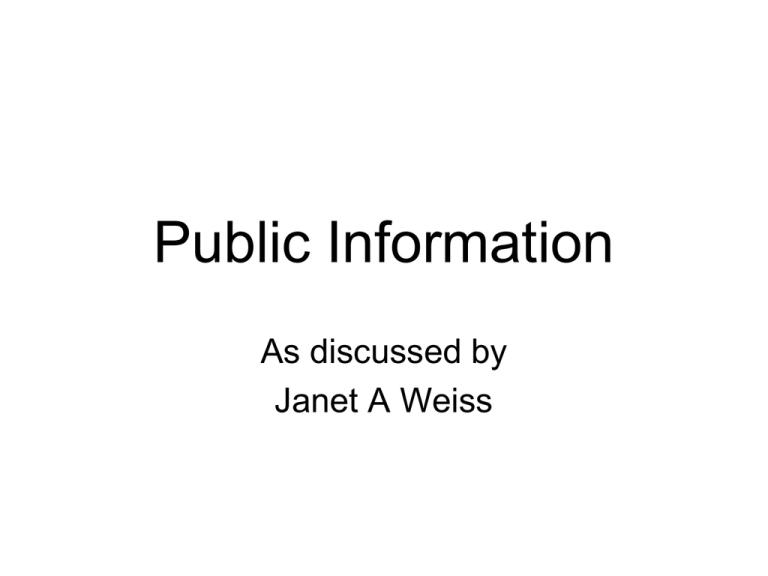
Public Information As discussed by Janet A Weiss Background On Dr. Weiss • Professor of Organizational Behavior and Public Policy at Univ. of Michigan • Widely published in academic journals on role of information in the policy process • Earned Ph.D. in psychology from Harvard NHTSA: Click It or Ticket!! Defining the Tool • Influence people’s thoughts, knowledge, and behaviors • Public Information may be : – distributed by the government – collected by the government Assumptions • People are rational • People will adjust their behavior based on new information • Information will reach the targeted audience • The information will be understood Dimensions of Public Information • Directness: info is very versatile -may be direct or indirect -hurricane evacuation or financial disclosure statement • Automaticity: uses channels created for purposes (print, broadcast media,web) -seldom automatic, used to counteract info from other sources Dimensions continued • Visibility: seldom require large amounts of money but are highly visible by public • Coerciveness: mixed feelings -govt dissemination of info seen as non-coercive -govt collection of info may be viewed as highly restrictive to some Catalog of Federal Domestic Assistance • Identifies three categories of federal govt information interventions 1) Counseling or advisory services 2) Dissemination of technical info 3) Training • According to CFDA, US govt has spent 5 billion – 7 billion per year on information between 1979 and 1999 Samples of US policy • • • • • • Truth in Lending Environmental Impact Statements Hazardous Material Disclosure (OSHA) Tobacco Warning Labels Nutrition/Food Lables (FDA) Freedom of Information Act Policy Implementation • • • • • Define target audience Decide what info will be useful Obtain the information Deliver the information Mobilize social and institutional factors to reinforce desired behavior When to use public information as a governmental tool • Problem is caused by information asymmetry • Targets of the policy are broadly dispersed • Voluntary compliance is expected • Broad agreement on desired outcome • Target behavior is outside realm of governmental action (vices, habits, exercise, food consumption) Public Information may be ineffective when: • Uniform compliance with the policy is desired • Problem is caused by lack of resources • No information is available regarding the problem (conflict of values or ideology) Political Challenges • May be used for the appearance of action without actually delivering results • May be cheapest alternative • May be designed to “blame the victim” • May not be completely honest or forthright Evaluating Public Information as a Governmental Tool • Effectiveness: 1) Organizational Reporting-generating specific info within an organization and reporting it to an outside audience -use of reports by external actors not important -organization will use own report to internally improve agency (avoid criticism or controversy) Evaluating Public Information as a Governmental Tool • Effectiveness continued: 2) Public Information Campaignsattempt to change what people think in order to change a specific behavior -difficult to measure effectiveness (was message received, received by target audience, message understood, was action taken as a result?) Evaluating Public Information as a Governmental Tool 3) Labeling- designed to promote informed choices under some consideration of the risk involved (health and safety) -research reveals a well-designed warning or label does seem to be effective in reducing risk taking and increase safe behavior Evaluating Public Information as a Governmental Tool • Equity: -may increase inequality between those with access to information and those without -offers an opportunity to lessen this gap • Efficiency: -low cost of policy assumes efficiency -efficiency not adequately analyzed in literature. More research required Evaluating Public Information as a Governmental Tool • Legitimacy: -area of high debate -information and a well informed public is the heart of a democracy -”tutelary power” of majoritarian government will undermine freedom (Alexis de Tocqueville) Future Impacts/Conclusions • Best used in combination with other policy tools • Focus should be placed on training • Increased access to information through technology will revolutionize government
